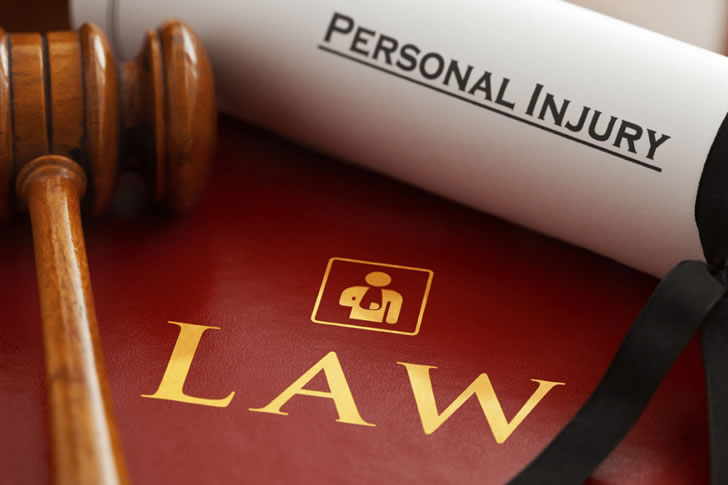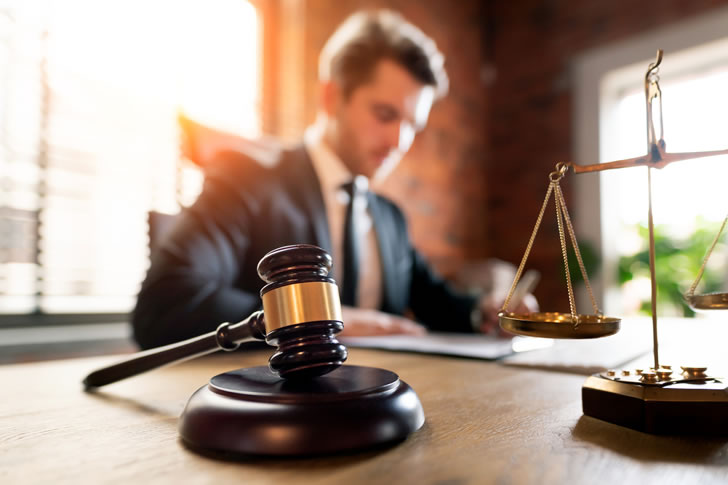Guide To Finding The Right Personal Injury Attorney
If you’ve been injured in an accident, finding the best personal injury lawyer is crucial for securing the compensation you deserve. This comprehensive guide will help you understand what to look for in a lawyer, how to compare your options, and ensure you choose the best advocate for your case.

Key Factors to Consider
- Experience: Look for a lawyer with significant experience handling personal injury claims similar to yours.
- Reputation: A lawyer’s reputation in handling cases effectively can be a good indicator of success.
- Communication: Choose someone who communicates clearly and timely.
- Fees: Understand how the lawyer charges, whether it’s a flat fee, hourly rate, or contingency fee.
Bullet List: What to Ask During a Consultation
- What is your experience with my type of injury case?
- What are your most recent case outcomes?
- How do you structure your fees?
- Who in your office will handle my case?
- How will you communicate updates to me?
As we age, we become more vulnerable to injuries, and accidents can have severe consequences for senior citizens. Whether it’s a slip and fall, a car accident, or medical malpractice, seniors are not immune to personal injuries, and their rights to compensation and justice remain just as important. In this blog, we will explore the legal protections available to seniors when navigating personal injury claims after accidents.
The Unique Vulnerabilities of Seniors
Seniors face unique challenges when it comes to personal injury claims, primarily due to their increased vulnerability. Some factors that contribute to this vulnerability include:
- Physical Fragility: Aging can result in decreased bone density and muscle mass, making seniors more susceptible to fractures and injuries in accidents.
- Slower Healing: Seniors often take longer to recover from injuries, which can impact their overall quality of life.
- Medical Complications: Underlying health conditions and medications can complicate injuries, making the legal aspects of personal injury claims more intricate.
- Financial Impact: Senior citizens may face increased medical bills and potential long-term care needs, making compensation critical for their well-being.
Legal Protections for Seniors
While senior citizens may be more vulnerable to accidents and injuries, they are not without legal protections. Several legal avenues can help seniors seek compensation and justice following an accident:
- Personal Injury Claims: Seniors, like individuals of any age, have the right to file personal injury claims if their injuries result from someone else’s negligence. This can include slip and fall accidents, car accidents, or other incidents where another party is at fault.
- Nursing Home Abuse Claims: If a senior is living in a nursing home or long-term care facility and experiences abuse or neglect, they can file a claim against the facility responsible for their care.
Key Considerations for Seniors
When pursuing a personal injury claim, seniors should keep the following points in mind:
- Document Everything: Keep detailed records of the accident, medical treatments, and any communications with insurance companies or legal representatives.
- Seek Medical Attention: Prioritize your health and well-being by seeking prompt medical attention for any injuries, no matter how minor they may seem.
- Consult with an Attorney: A personal injury attorney with experience in senior cases can provide valuable guidance and representation throughout the legal process.
- Understand Your Rights: Familiarize yourself with the legal protections and avenues available to you, ensuring you receive the compensation and justice you deserve.
By understanding the unique vulnerabilities and legal protections for seniors, individuals can better navigate personal injury claims and secure the necessary compensation for their recovery and well-being.
Chart: Attorney Success Rates by Type of Injury Case
This chart compares the success rates of attorneys in different types of injury cases, demonstrating which areas tend to have higher favorable outcomes.
Table: Comparison of Injury Attorney Fees in Major Cities
| City | Average Contingency Fee | Additional Costs |
|---|---|---|
| New York | 33% | $500 – $2,000 |
| Los Angeles | 35% | $500 – $3,000 |
| Chicago | 30% | $300 – $1,500 |
| Houston | 32% | $400 – $1,800 |
| Philadelphia | 34% | $400 – $2,000 |
FAQ Section
Q: How important is a lawyer’s specific experience in personal injury?
A: Extremely. Specific experience means the lawyer understands the nuances of the law related to personal injury and how to leverage them for the best outcome.
Q: Can I switch lawyers if I’m not satisfied?
A: Yes, you can always switch lawyers if you feel your needs and expectations are not being met.
Q: What should I do if a lawyer asks for money upfront?
A: Most personal injury lawyers work on a contingency basis, meaning they only get paid if you win. Be cautious of those asking for upfront fees.
Analyzing Lawyer Success Rates
The chart depicts the success rates of local personal injury lawyers in the past five years, providing a visual comparison to help you make an informed decision.
Conclusion
Choosing the right personal injury lawyer involves careful consideration of their experience, communication style, and how they charge. With the right preparation and research, you can find a lawyer who will effectively represent your interests and help you receive the maximum compensation.
Reference Sources
Steps to Finding the Best Lawyer












Recent Comments